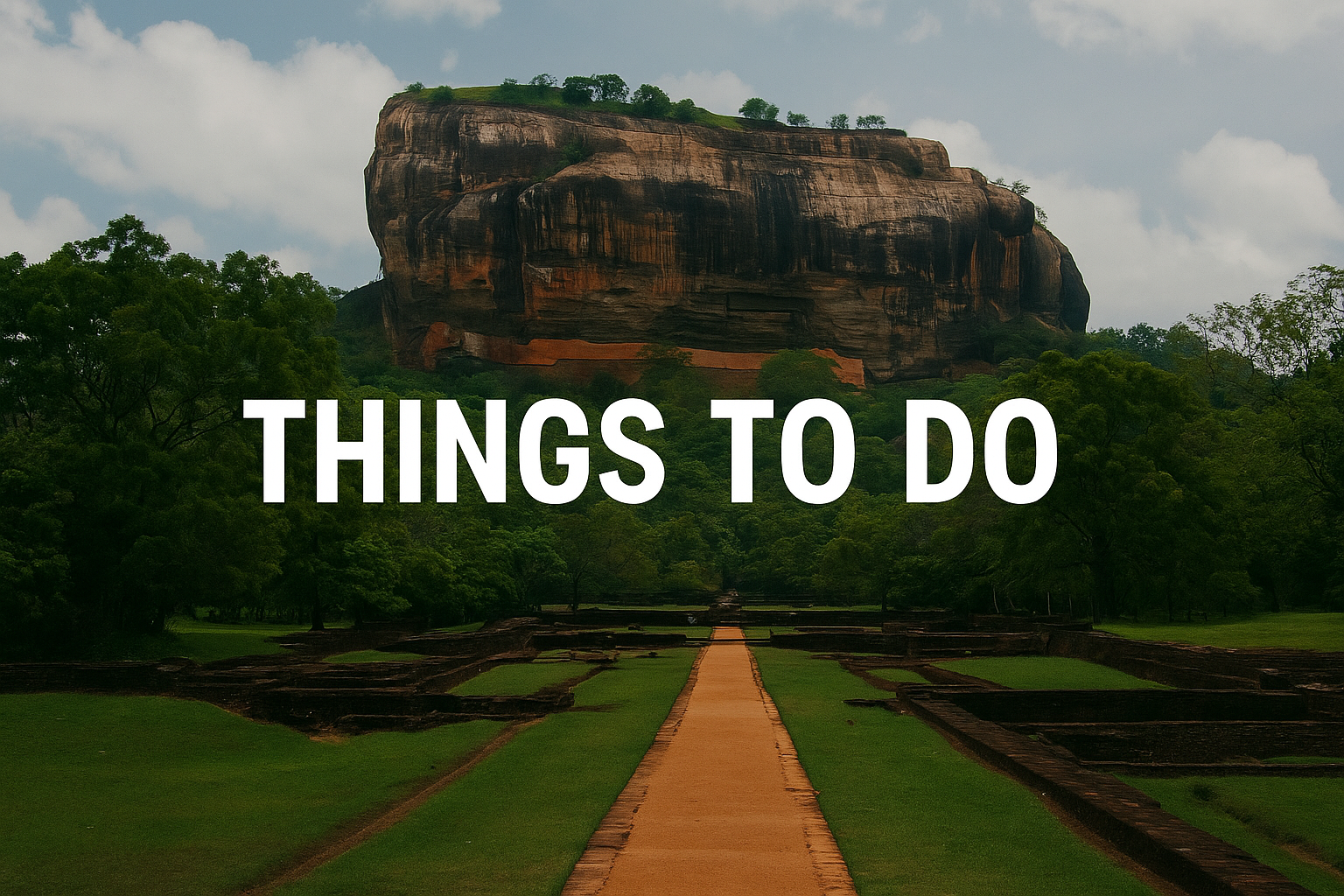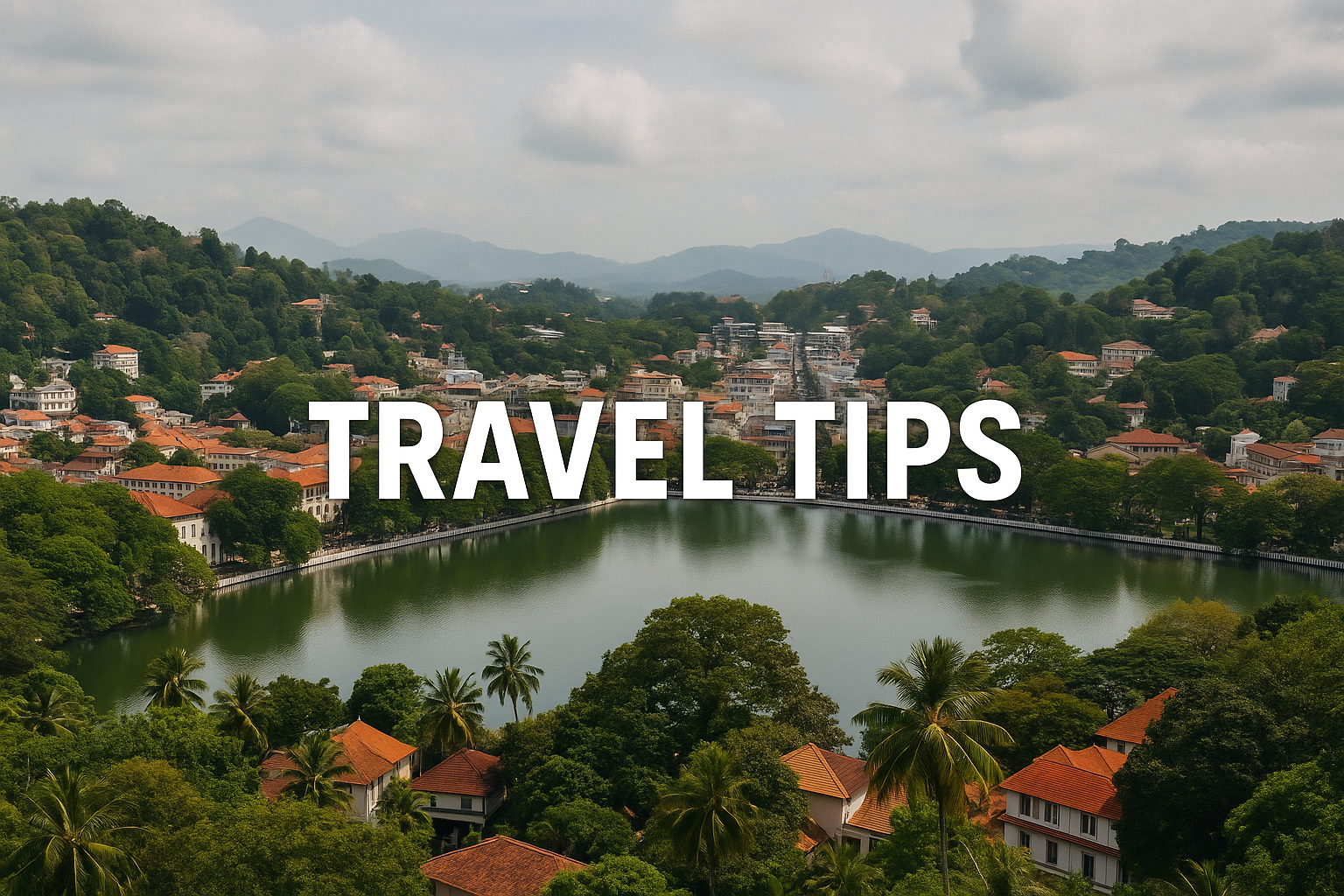Travel Tips for Sri Lanka
Make the most of your Sri Lankan adventure with these essential insights and practical advice
Essential GuideEssential Travel Tips
Practical advice to help you navigate, experience, and enjoy Sri Lanka to the fullest
Visa & Documentation
Most visitors need an Electronic Travel Authorization (ETA) which can be obtained online before travel. Ensure your passport is valid for at least 6 months from your arrival date.
Best Time to Visit
The west and south coasts are best from December to March, while the east coast shines from April to September. Hill country is pleasant year-round.
Food & Drink
Don’t miss trying rice and curry, hoppers, kottu roti, and fresh seafood. Drink bottled water and be cautious with street food initially to avoid stomach issues.
Money Matters
The local currency is Sri Lankan Rupees (LKR). Credit cards are widely accepted in cities, but carry cash for rural areas. ATMs are readily available in towns.
Cultural Etiquette
Dress modestly when visiting temples (cover shoulders and knees). Remove shoes before entering religious sites. Avoid public displays of affection.
Getting Around
Tuk-tuks are great for short distances. For longer trips, consider trains for scenic routes or hire a private driver for flexibility. Domestic flights connect major cities.
Health & Safety
Use mosquito repellent to prevent dengue. Apply sunscreen regularly. Tap water is not safe to drink – stick to bottled water. Emergency number: 119.
Shopping & Souvenirs
Bargain at local markets. Popular souvenirs include Ceylon tea, spices, batik clothing, wooden masks, and gemstones (buy from reputable dealers).
Language & Communication
Sinhala and Tamil are official languages, but English is widely spoken in tourist areas. Learn a few basic phrases like “Ayubowan” (hello/goodbye) to connect with locals.
Accommodation
Sri Lanka offers diverse accommodation from luxury resorts to budget guesthouses. Book in advance during peak season (Dec-Mar). Consider boutique hotels for authentic experiences.
Photography
Always ask permission before photographing people, especially in rural areas. Some temples may charge photography fees. Sunrise and sunset offer the best light for landscapes.
Adventure Activities
Sri Lanka offers surfing, hiking, wildlife safaris, and more. Always use reputable operators, check safety equipment, and consider travel insurance for adventure activities.
Weather & Seasons
Plan your trip according to Sri Lanka’s unique climate patterns
Dry Season
December – MarchBest for visiting the west and south coasts, with sunny days and minimal rainfall. Perfect for beach holidays and cultural sites.
Inter-monsoon
April & OctoberTransition periods with occasional showers. Good for visiting hill country and cultural triangle. Fewer tourists.
Southwest Monsoon
May – SeptemberRain affects west and south coasts. Ideal time to visit the east coast and northern regions which remain dry.
Northeast Monsoon
November – FebruaryBrings rain to the east and north. West and south coasts enjoy dry, pleasant weather during this period.
Frequently Asked Questions
Quick answers to common questions about traveling in Sri Lanka
Yes, most nationalities require an Electronic Travel Authorization (ETA) which can be obtained online before travel. Some countries are eligible for visa on arrival, but it’s recommended to get the ETA in advance to avoid delays.
Sri Lanka is generally safe for tourists. Exercise normal precautions as you would in any foreign country. Be aware of your surroundings, avoid political demonstrations, and follow local advice. Tourist police are present in popular areas.
Recommended vaccinations include Hepatitis A and B, Typhoid, and Tetanus. Depending on your travel plans, Japanese Encephalitis and Rabies vaccines may also be recommended. Consult with a travel medicine specialist 4-6 weeks before your trip.
The local currency is the Sri Lankan Rupee (LKR). Credit cards are widely accepted in hotels, restaurants, and larger shops in cities and tourist areas. However, it’s advisable to carry cash for smaller establishments, markets, and rural areas.
Lightweight clothing for coastal areas, warmer layers for hill country, modest attire for temple visits (covering shoulders and knees), comfortable walking shoes, sunscreen, insect repellent, a reusable water bottle, and any necessary medications.
Yes, English is widely spoken in tourist areas, hotels, and by many people in cities. In rural areas, English may be less common, but people are generally helpful. Learning a few basic Sinhala or Tamil phrases is appreciated.
Tipping is appreciated but not mandatory. In restaurants, a 10% service charge is often included. For exceptional service, an additional 5-10% is appreciated. For drivers and guides, tipping is customary based on satisfaction with the service.
It’s not recommended to drink tap water in Sri Lanka. Stick to bottled water, which is widely available. Many hotels provide filtered water. Avoid ice in drinks unless you’re sure it’s made from purified water.
Ready to Explore Sri Lanka?
Start planning your unforgettable journey to the Pearl of the Indian Ocean with our comprehensive travel resources
The Ceylon Story
Crafting unforgettable journeys through the heart of Sri Lanka.
Destinations
Culture and Heritage
Beach and Sunset
Nature and Hills
Wildlife and National parks
City of Life
Tour
Signature Collection
Tailormade Experience
Luxury Escape
Information
About Us
Contact Us
Become Partner
Travel Tips
Copyright @ 2025 The Ceylon Story, All Rights Reserved





